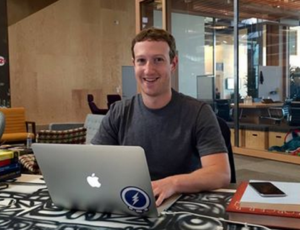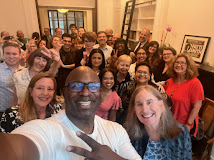Yesterday, the City Council Education Committee and new chair, Mark Treyger, held hearings on the Community and Renewal school initiative of the NYC Department of Education. This was a timely hearing as tonight at the Panel for Educational Policy there will be a vote to close, truncate or merge 19 schools, 14 of them Renewal schools. Testifying for the DOE were Chris Caruso, head of the Office of Community Schools, Aimee Horowitz, executive superintendent of the Office of Renewal schools, Laura Feijoo, senior supervising superintendent, and Cheryl Watson Harris, senior executive director of the Office of Field Support.
There has been much criticism of the misplaced spending priorities and bureaucratic overload of the Renewal school initiative, including on this blog here, and here, as well as the huge cost of the program at $582 million so far. Also often noted are the ambiguous and often seemingly arbitrary decisions made by DOE officials about which struggling schools were placed in this program to begin with and which schools they have decided to close, with uncertain and often shifting rationales and timelines. Nothing said yesterday by the educrats from Tweed put any of these concerns at rest.

There has been much criticism of the misplaced spending priorities and bureaucratic overload of the Renewal school initiative, including on this blog here, and here, as well as the huge cost of the program at $582 million so far. Also often noted are the ambiguous and often seemingly arbitrary decisions made by DOE officials about which struggling schools were placed in this program to begin with and which schools they have decided to close, with uncertain and often shifting rationales and timelines. Nothing said yesterday by the educrats from Tweed put any of these concerns at rest.

According to an email I received from Aaron Pallas, professor at Teachers College who has studied the Renewal program, “the DOE did not use a consistent set of criteria for selecting the Renewal schools -- at least, based on the most obvious selection criteria, such as test scores and graduation rates, as well as the other demographic factors I looked at.”
Pallas also looked at the most recent school Quality Reviews, because the DOE said that that was part of the selection process, but these Reviews didn't seem to be associated with their selection into the program either, once performance and demographic factors were taken into account.
Pallas also looked at the most recent school Quality Reviews, because the DOE said that that was part of the selection process, but these Reviews didn't seem to be associated with their selection into the program either, once performance and demographic factors were taken into account.
The DOE decision to close these schools has too often lacked clear objective criteria. Already, 16 of the original 94 Renewal schools have been closed or merged. In many cases, Renewal schools that have made their performance targets have been closed or truncated anyway; in other cases, schools that failed to achieve their targets have been kept open.
Too often explanations from insiders are that the district Superintendent lacked confidence in the principal of a certain school, or the principal wanted to get rid of some teachers, though certainly there are better ways of confronting these issues than wreaking havoc on hundreds of kids' lives by closing the school. Many principals have been replaced at these schools already, according to DOE testimony at the hearings: Of the original 94 schools, there have been 70 principal changes at a total of 56 Renewal schools -- meaning some schools have seen two changes of leadership in the last three years.
At the hearings, CM Alicka Samuels pointed out that Brooklyn Community HS had just been taken off the state's priority list of struggling schools because of improved results when the DOE announced they would close the school. Laura Feijoo of DOE said this apparently contradictory decision was made because the DOE has more "challenging" standards than the state. Though the Mayor announced a temporary reprieve for Brooklyn Community HS after pressure from state legislators, CM Treyger criticized the wording of de Blasio's announcement, in which the closure was put on "pause", which keeps the school under a dark cloud and makes it far more difficult to recruit students and retain teachers.
CM Samuels asked how many schools currently slated for closure, merger or truncation are co-located with charter schools, which may be looking to expand. Feijoo responded that of the 18 schools, only four were co-located with charters. (I think that's what she said, you can check out the video yourself, at 2 hours and 10 minutes in.) Actually of the 19 schools facing this fate this year, 12 of them are co-located with charter schools. (See the list here.)
Aaron Pallas has also found that despite the considerable amount of funding spent on them, the Renewal school have not done any better than similar schools which are not in the program. The data provided by the DOE at the hearing was not encouraging either -- showing that these schools in many cases have shown LESS improvement in graduation rates and test scores than other Community schools, despite all the additional funding, teacher training, and extra learning time poured into them [though the data on graduation rates and test scores of Community schools in the DOE's testimony was represented as percentage increases, and the Renewal schools as percentage point increases, so even this is unclear.] .
CM Treyger and several of his colleagues asked incisive questions and follow-up questions, but few clear answers were provided by the DOE officials -- and in some instances, their responses suggested that the decisions to close these schools may be even more arbitrary in the future. Instead of the specific targets Renewal schools are now asked to achieve, in the future each school will have a "range" of targets, said DOE officials, whatever that means. As to the subset of 21 improving Renewal schools that will graduate into the Rise program, the DOE provided shifting timelines as to when they will have to meet new targets. At first they said these schools would have two years, but then it became clear that since they will not officially enter the Rise program until July, the deadline is only a year and half away.
There was also considerable confusion about the selection process of each Community school's Community Based Organization partner and the Community school leader. The CSA and UFT representatives complained that this was often decided by the DOE, not the principal or the School Leadership Team. The CSA rep, Henry Rubio, testified, "Currently, it is unclear what, if any, role Principals play in evaluating and when necessary, replacing CBOs in community schools....In situations where it has not been made clear that CBOs are accountable to school leaders and leadership teams, the School Renewal Program has not been as successful as it otherwise might have been." Yet the representative of one of the primary CBO partners, Phipps Neighborhoods Inc., insisted that these decisions were made with full input of the entire school community.
Also left unclear was the status of the numerous and sometimes conflicting directives confronting Renewal school principals. CM Inez Barron stated that Renewal principals had complained to her about how they were forced to send staff to off-site Professional Development sessions, which play havoc with their teachers' scheduled classes and assigned responsibilities. Feijoo insisted that the decision as to whether to send staff to these trainings was left completely up to the principal's discretion.
I focused in my testimony on the fact that the DOE has repeatedly promised the state to reduce class size in a subset of struggling schools since 2007, as part of its Contract for Excellence plans, but has never followed through in a systematic manner. Since 2014, the DOE more specifically has pledged to the state to focus its class size reduction efforts on Renewal schools, and this hasn't happened either.
 Instead, we found that 42% of Renewal schools haven't reduce average class size at all since 2014, and several have substantially increased class size. But of the schools that did lower class size, most saw improvements in student outcomes and learning.
Instead, we found that 42% of Renewal schools haven't reduce average class size at all since 2014, and several have substantially increased class size. But of the schools that did lower class size, most saw improvements in student outcomes and learning.
In fact, we found a substantial and significant correlation between the average class size of Renewal schools and their positive impact on student achievement, a rating that DOE calculates after taking account the need level of their students.
Rather than lower class size in all these schools and allow them a real chance to succeed, by closing them instead, DOE will merely ensure that many more capable teachers will be placed on the Absent Teacher Reserve, which is already costing the city an estimated $152 million per year. In the ATR, they will be used as substitutes or roaming teachers and never assigned to a permanent class where they could be used to reduce class size.
This is an entirely self-defeating and damaging policy. My testimony is posted here and below; please take a look and let me know what you think.
Also left unclear was the status of the numerous and sometimes conflicting directives confronting Renewal school principals. CM Inez Barron stated that Renewal principals had complained to her about how they were forced to send staff to off-site Professional Development sessions, which play havoc with their teachers' scheduled classes and assigned responsibilities. Feijoo insisted that the decision as to whether to send staff to these trainings was left completely up to the principal's discretion.
I focused in my testimony on the fact that the DOE has repeatedly promised the state to reduce class size in a subset of struggling schools since 2007, as part of its Contract for Excellence plans, but has never followed through in a systematic manner. Since 2014, the DOE more specifically has pledged to the state to focus its class size reduction efforts on Renewal schools, and this hasn't happened either.
 Instead, we found that 42% of Renewal schools haven't reduce average class size at all since 2014, and several have substantially increased class size. But of the schools that did lower class size, most saw improvements in student outcomes and learning.
Instead, we found that 42% of Renewal schools haven't reduce average class size at all since 2014, and several have substantially increased class size. But of the schools that did lower class size, most saw improvements in student outcomes and learning. In fact, we found a substantial and significant correlation between the average class size of Renewal schools and their positive impact on student achievement, a rating that DOE calculates after taking account the need level of their students.
Rather than lower class size in all these schools and allow them a real chance to succeed, by closing them instead, DOE will merely ensure that many more capable teachers will be placed on the Absent Teacher Reserve, which is already costing the city an estimated $152 million per year. In the ATR, they will be used as substitutes or roaming teachers and never assigned to a permanent class where they could be used to reduce class size.
This is an entirely self-defeating and damaging policy. My testimony is posted here and below; please take a look and let me know what you think.
















